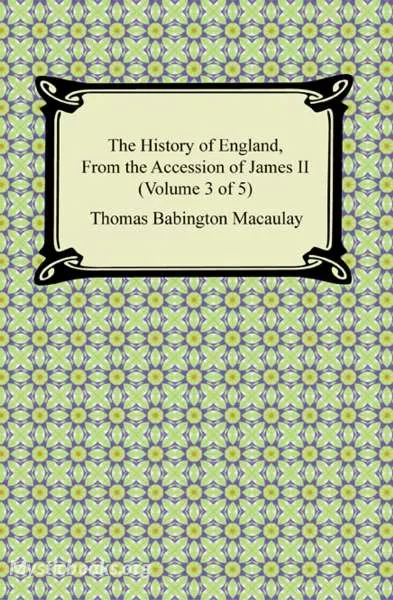
The History of England, from the Accession of James II - (Volume 3, Chapter 11)
'The History of England, from the Accession of James II - (Volume 3, Chapter 11)' Summary
Macaulay's approach to writing the History was innovative for his period. He consciously fused the picturesque, dramatic style of classical historians such as Thucydides and Tacitus with the learned and factual approach of his 18th-century precursors such as Hume, following the plan laid out in his own 1828 "Essay on History".
The History is famous for its brilliant ringing prose and for its confident, sometimes dogmatic, emphasis on a progressive model of British history. According to this view, England threw off superstition, autocracy and confusion to create a balanced constitution and a forward-looking culture combined with freedom of belief and expression. This model of human progress has been called the Whig interpretation of history.
Book Details
Language
EnglishOriginal Language
EnglishPublished In
1848Authors
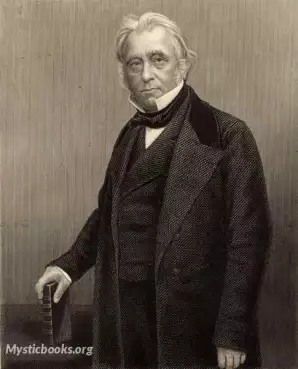
Thomas Babington Macaulay
England
Thomas Babington Macaulay, 1st Baron Macaulay was a British historian and Whig politician. He is considered primarily responsible for introducing the Western education system in India. He wrote extens...
Books by Thomas Babington MacaulayDownload eBooks
Listen/Download Audiobook
- Select Speed
Related books

The Great Events by Famous Historians, Volume 12 by Charles F. Horne
Dive into the depths of history with "The Great Events by Famous Historians, Volume 12" by Charles F. Horne, a riveting compilation that unveils the m...

Two Years in the Forbidden City by Der Ling Yu
'Two Years in the Forbidden City' offers a unique glimpse into the inner workings of the Qing Dynasty court through the eyes of Der Ling Yu, a close c...
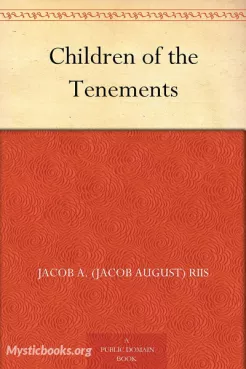
Children of the Tenements by Jacob Riis
"Children of the Tenements" by Jacob A. Riis is a non-fiction book that explores the lives of impoverished children living in New York City's tenement...
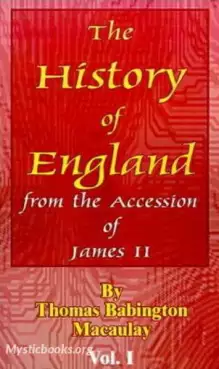
The History of England, from the Accession of James II - (Volume 1, Chapter 05) by Thomas Babington Macaulay
This chapter of Macaulay’s History of England is concerned, for a large part, with insurrection against James II and his manoeuverings to suppress the...

The History of England, from the Accession of James II - (Volume 4, Chapter 18) by Thomas Babington Macaulay
The History of England from the Accession of James the Second (1848) is the full title of the five-volume work by Lord Macaulay (1800–1859) more gener...

The Rise and Fall of Prohibition by Charles Hanson Towne
The strange phenomenon of Prohibition, after an appearance amongst us of over three years, is still non-understandable to the majority of a great, and...

vierzehnte Dezember by Dmitry Merezhkovsky
This historical novel explores the 1825 Decembrist revolt in Russia, a pivotal moment in the country's history. Through the story of Prince Golyzin, a...

Вехи-Сборник статей о русской интеллигенции (Vekhi) by Nikolai Berdyaev
«Вехи» — сборник философских эссе, написанных группой русских интеллектуалов в 1909 году. Авторы анализируют своё участие в революции 1905 года и кри...

Jürg Jenatsch by Conrad Ferdinand Meyer
Jürg Jenatsch ist ein historischer Roman, der im Dreißigjährigen Krieg spielt und sich auf die turbulenten Ereignisse in Graubünden konzentriert. Im Z...
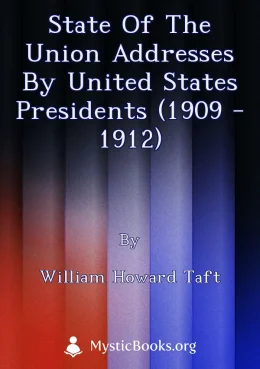
State of the Union Addresses by United States Presidents (1909 - 1912) by William Howard Taft
This book is a collection of speeches given by William Howard Taft during his presidency. The State of the Union address is a speech presented by the...
Reviews for The History of England, from the Accession of James II - (Volume 3, Chapter 11)
No reviews posted or approved, yet...